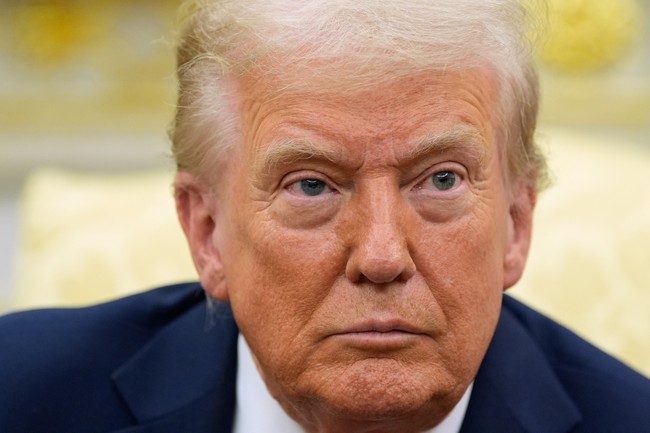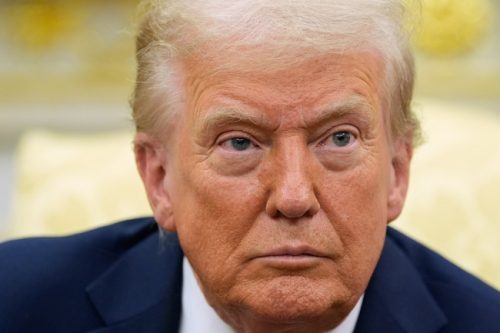President Trump Blasts Chuck Schumer as Shutdown Enters Third Week
President Trump opened fire on Senate Democrats, accusing them of “holding the entire federal government hostage” and swearing that “We will not be extorted on this crazy plot of theirs.” He framed the standstill as political theater rather than governance and placed blame squarely on Senate leadership. The message was blunt and meant to rally supporters and pressure wavering senators.
Speaking from the White House Rose Garden, the president demanded immediate action: “Chuck Schumer and the Senate Democrats need to vote for the clean, bipartisan CR and reopen our government. It’s got to be reopened right now.” He presented the clean continuing resolution as the commonsense fix Democrats were refusing to accept. The call was both an appeal to process and a public rebuke.
“They are the obstructionists. And the reason they’re doing it is because we’re doing so well. We’re doing well all over the world,” the president continued, arguing that his administration’s successes had put Democrats on the defensive. That line framed the shutdown as a partisan response to political setbacks rather than a genuine policy dispute. It was one of several zingers aimed at shifting the debate to public opinion.
The president then labeled Senator Schumer a politician in “deep trouble” who was “losing in all of the polls.” He went further with the line, “He’s even losing to AOC, plus three,” invoking the House progressive grouping often called the Squad—Alexandria Ocasio-Cortez of New York, Ilhan Omar of Minnesota, Ayanna Pressley of Massachusetts, and Rashida Tlaib of Michigan—to underline Schumer’s perceived weakness. The rhetoric was designed to paint Democratic leadership as disconnected from its base and from national sentiment.
BREAKING 🚨 While in the Rose Garden President Trump has a message for Democrats: He will never CAVE to Democrat demands
"We WILL NOT BE EXTORTED on this CRAZY plot of theirs”
HOLD THE LINE 🔥 pic.twitter.com/k2bmVo5yoL
— MAGA Voice (@MAGAVoice) October 21, 2025
The standoff is now widely referred to as the Schumer Shutdown, and it has officially entered its third week. “You can call it the Schumer shutdown or the Democrats’ shutdown,” Trump quipped, turning the label into a political cudgel. That line reinforced the administration’s message that the opposition, not the White House, is responsible for the gridlock.
“You can call it whatever you want. And I will say this, that we have Darth Vader, you know, Darth Vader, right?” the president said, pointing to the Office of Management and Budget’s hard choices. “They call him Darth Vader. I call him a fine man, but he’s cutting Democrat priorities, and they’re never going to get them back.” The comment framed budget trimming as both principled governance and a direct challenge to Democratic spending aims.
“Many of the things that they wanted are things that we don’t want. Things that are just so bad for our country, and we’re cutting those things out,” Trump added, insisting the administration was protecting national interests by rejecting provisions it judged harmful. He asked Senate Democrats to change course and “stop the madness, to let our country get back.” That appeal mixed policy argument with political pressure.
“In the greatest moment in the history of our country, in terms of wealth, in terms of job creation and in terms of investment coming in, these guys go on strike. It’s really a shame. So, I’m asking them to be smart.” The president used the administration’s economic record as the backdrop for his rebuke, arguing the shutdown was both unnecessary and damaging. He cast the impasse as a self-inflicted wound by the opposition.
“It’s not working. They’re getting killed in the polls. The public understands what they’re doing. They’re doing the wrong thing.” That final stretch of remarks doubled down on the political consequences Democrats may face if the shutdown continues. Trump framed the polling and public reaction as validation of his position and a rallying cry for his base to press their representatives.
Across the speeches and soundbites, the administration pushed a simple narrative: Democrats engineered a shutdown rather than pass a clean funding bill, and that choice carries political and policy costs. The message was direct, combative, and built to keep the spotlight on Senate leadership as the standoff stretches on. Observers now watch whether that pressure can force a break in the impasse or only sharpen the partisan divide.






